13 February
1542 - Catherine Howard, fifth wife of Henry VIII, and Lady Jane Rochford were executed at the Tower of London. They had been found guilty of treason by Act of Attainder. They were both buried in the Chapel of St Peter ad Vincula at the Tower of London. Click here to read more.
1564 – Baptism of John Harvey, astrologer and physician, at Saffron Walden in Essex. Harvey was the third son of John Harvey, farmer and rope-maker, and his wife, Alice. His published works included “An Astrologicall Addition” (1583), a series of almanacs and “A Discoursive Probleme Concerning Prophesies” (1588).
1579 – Death of John Fowler, the English Catholic printer and publisher, in Namur, during his exile in the reign of Elizabeth I. He was buried there in the church of St John the Evangelist. He is known as one of the most important English Catholic publishers of the 1560s and 70s.
1585 – Death of Nicholas Robinson, Bishop of Bangor. He was buried in Bangor Cathedral with a memorial brass marking his resting place.
1608 – Death of Elizabeth Talbot, Countess of Shrewsbury, known as Bess of Hardwick, at Hardwick. Her body lay in state at Hardwick until her funeral at All Hallows, Derby (now All Saints' Cathedral), on 4th May 1608. Bess was married four times - Robert Barlow (c. 1543), Sir William Cavendish (1547), Sir William St Loe (c. 1557/8) and finally to George Talbot, 6th Earl of Shrewsbury (1567). Bess is known for her building projects, which included Chatsworth and Hardwick Hall, her beautiful needlework and the fact that she and Shrewsbury were guardians of the captive Mary, Queen of Scots between 1569 and 1584.
14 February
1492 – Death of William Berkeley, Marquis of Berkeley and a man known as “William Waste-all”. He was buried in the Augustinian friary in London with his second wife, Joan.
1539 – Trial of Sr Nicholas Carew. He was found guilty of treason, after being implicated in the Exeter Conspiracy, and sentenced to death. Carew was executed on 3rd March 1539 at Tyburn.
1547 - Henry VIII’s coffin was taken to Windsor for burial after resting overnight at Syon Abbey. Apparently, some liquid leaked out of it on to the floor at Syon, and this was thought to fulfil the prophecy made by Franciscan friar William Peto in 1535. He had preached in front of the King at Greenwich that “God’s judgements were ready to fall upon his head and that dogs would lick his blood, as they had done to Ahab.”
1556 – Thomas Cranmer was degraded from his office of Archbishop of Canterbury for heresy.
1601 – Execution of Thomas Lee, soldier, at Tyburn. He was hanged, drawn and quartered after being implicated in the failed rebellion of Robert Devereux, Earl of Essex.
15 February
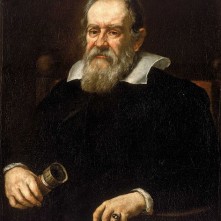
Galileo Galilei
1499 – Death of James Goldwell, Bishop of Norwich, at the bishop's palace in Hoxne, Suffolk. He was buried in Norwich Cathedral, in the chantry chapel.
1503 – Death of Henry Deane, administrator and Archbishop of Canterbury. As well as serving Henry VII as Archbishop, Deane also served as Chancellor of Ireland, Deputy Governor for Prince Henry and Keeper of the Great Seal. He died at Lambeth Palace and was buried at Canterbury Cathedral at a lavish funeral.
1536 – Death of Richard Rawlins, Bishop of St David's and former warden of Merton College.
1551 - Thomas Arden, businessman and inspiration for the 1592 Elizabethan play, “The Tragedie of Arden of Feversham and Blackwill”, was murdered by his wife, Alice, and her lover, Thomas Morsby, and conspirators.
1564 – Birth of Galileo Galilei, the Italian physicist, mathematician, astronomer, and philosopher, in Pisa, Italy. He was one of the central figures of the Scientific Revolution and supported Copernicanism (the heliocentric model). He has been referred to as “the Father of Modern Science”, “the Father of Modern Physics” and “the father of modern observational astronomy”. He is also known for his discovery of the Galilean Moons (Jupiter's satellites), his improved military compass and his work on the telescope.
1571 – Death of Sir Adrian Poynings, soldier. He served as a soldier in Boulogne from 1546 to 1550, when he was made Lieutenant of Calais Castle, then in the St Quentin campaign of 1557 and in Le Havre in 1562.
1598 – Death of John May, Bishop of Carlisle, at Rose Castle, his episcopal residence. He was buried in Carlisle Cathedral.
1616 – Death of Sir George Carey, Lord Deputy of Ireland. He was buried at c*ckington, Devon.
16 February
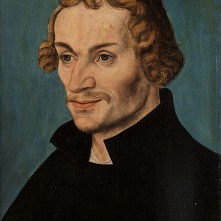
Philipp Melancthon by Lucas Cranach the Elder
1495 – Execution of Sir William Stanley by beheading on Tower Hill. He had been found guilty of treason for allegedly supporting the pretender Perkin Warbeck. Stanley is known for his change of sides at the Battle of Bosworth, when he decided to fight with Henry Tudor against Richard III.
1497 – Birth of Philipp Melancthon, German reformer, scholar and friend and colleague of Martin Luther, at Bretten, near Karlsruhe.
1547 - Henry VIII’s body was interred in a vault in St George's Chapel Windsor, alongside that of his third wife, Jane Seymour. Click here to read more about this.
1560 – Death of Jean du Bellay, diplomat and Bishop of Paris, in Rome. He was buried in the church of Trinità dei Monti.
1587 – Funeral of Sir Philip Sidney, courtier and author, at St Paul's Cathedral.
1595 – Probable date of the death of Adam Hill, Church of England clergyman and religious writer. He was buried in Salisbury Cathedral on 19th February. His published works included “The Crie of England” and “The Defence of the Article”.
17 February
1547 - Edward Seymour, uncle of King Edward VI, was made Duke of Somerset. Click here to read more about this.
1557 – Death of Henry Radcliffe, 2nd Earl of Essex, at Cannon Row, Westminster. He was buried firstly at St Laurence Pountney and then moved to Boreham in Essex.
1584 – Burial of John Watson, Bishop of Winchester, at Winchester. He was buried in the cathedral.
1590 – Death of Edward Leeds (Lydes), Rector of Croxton and Master of Clare College, Cambridge from 1560 to 1571. He died at his manor at Croxton in Cambridgeshire, and was buried at Croxton Church. Leeds had served Archbishop Matthew Parker as one of his chaplains.
18 February
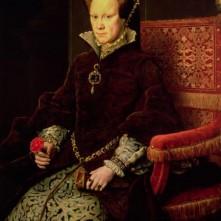
Mary I
1503 – Henry Tudor, the future Henry VIII, was created Prince of Wales.
1516 - Birth of Mary I, daughter of Henry VIII and Catherine of Aragon, at Greenwich Palace. Click here to read more about Mary's birth and christening.
1558 – Death of Sir George Barne, former Alderman and Lord Mayor of London. He was buried at St Bartholomew by the Exchange, London.
1561 – Death of Sir Thomas Denys, administrator. His offices included Comptroller to Princess Mary, Chancellor of Anne of Cleves' household, member of Parliament for Devon, Sheriff of Devon and Deputy Lieutenant of Devon and Cornwall.
1563 – Francis, Duke of Guise, was wounded by a Huguenot assassin. He died six days later.
1612 – Death of Roberto di Ridolfi, the merchant and conspirator famed for the Ridolfi Plot to assassinate Elizabeth I. He died in Florence, Italy.
19 February
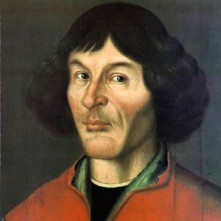
Nicholas Copernicus
1473 – Birth of Nicholas Copernicus, the Renaissance mathematician and astronomer, in Thorn, in the province of Royal Prussia, Poland. Copernicus is known for his theory of heliocentric cosmology, or the idea that the sun was stationary in the centre of the universe and that the earth revolved around it.
1547 - King Edward VI rode from the Tower of London to Westminster in preparation for his coronation the next day. Click here to read more.
1546 – William Cavendish was appointed Treasurer of the Privy Chamber. He later claimed that he had paid £1000 for the position.
1567 – The imprisoned Margaret Douglas, Countess of Lennox, was informed of the murder of her son, Henry Stewart, Lord Darnley, by William Cecil’s wife, Mildred, and Lady William Howard. The Spanish ambassador recorded that Margaret's grief was such “that it was necessary for the Queen to send her doctors to her”.
1592 - The Rose Theatre, an Elizabethan play house, was opened in London on Bankside.
1598 – Death of Jasper Heywood, Jesuit and poet, in Naples. Heywood had been deported to France in January 1585, after being imprisoned in the Tower of London for treason, and was then summoned to Rome. He never returned to England.
1601 – Death of Thomas Fanshawe, at Warwick Lane. He was buried in the south aisle of Ware church in Hertfordshire. Fanshawe was an Exchequer official during Elizabeth I's reign.


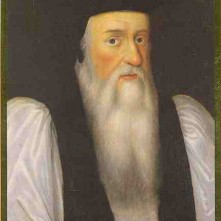
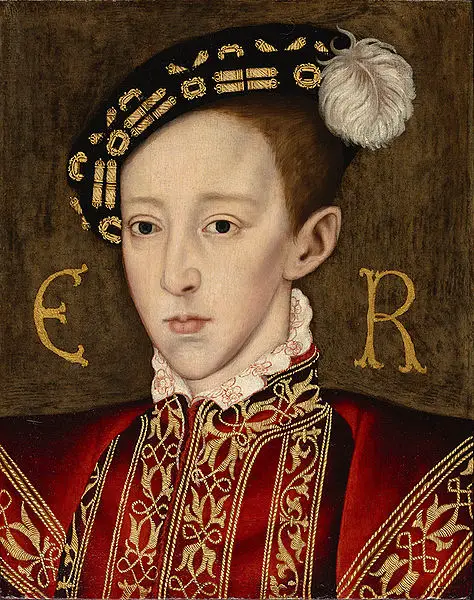
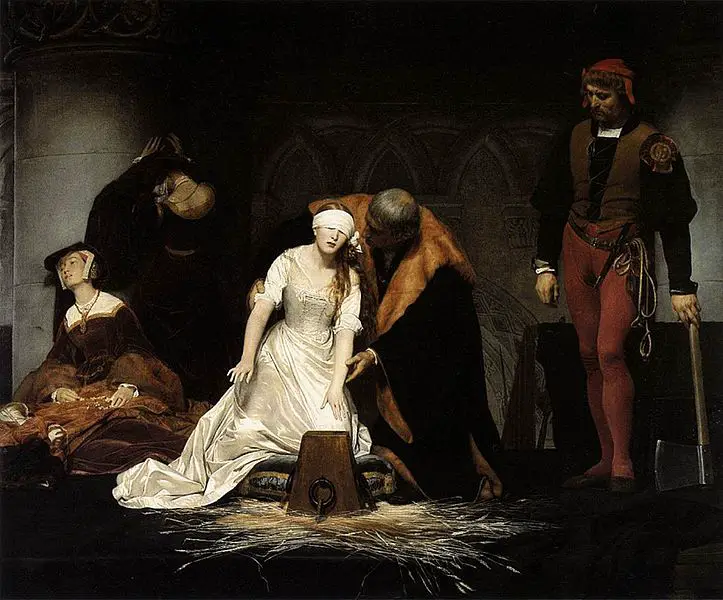
I really do adore your ‘This week in History’ posts, Claire. They’re one of the best things you do. They always get me thinking…
And this week’s thought was brought to you by your mention of John Harvey. Well, not John Harvey, per se, but by rope making. Have you ever seen rope made? It’s amazing! I grew up just a few miles from the priemier maritime living history museum in the US (Mystic Seaport). In one of my history classes in junior high school, we spend two days a week at the museum making things, and one of them was rope. We learned it by hand and by using the rope making jigs in the rope loft. Many years later, at an event of one of my favorite living history clubs, I ran into some folks dressed in early 1500s working class clothes who had set up a rope making operation off some low branches on an oak tree…and spent several hours relearning the trick of the twist-countertwist of making rope. I’m afraid I quite inappropriately got hemp fibers all over my upper middle class Spanish surcoat…
Yep, this week in history – good food for thought…and the occasional happy memory.
Thank you! I loved researching them as I found out about people and events I’d never heard of and then you end up going on a whole new journey to find out more.
Do you fancy writing an article on rope-making? I’ve seen it done on TV but never in real life and it is fascinating. I’d love to learn more.
Thank you!